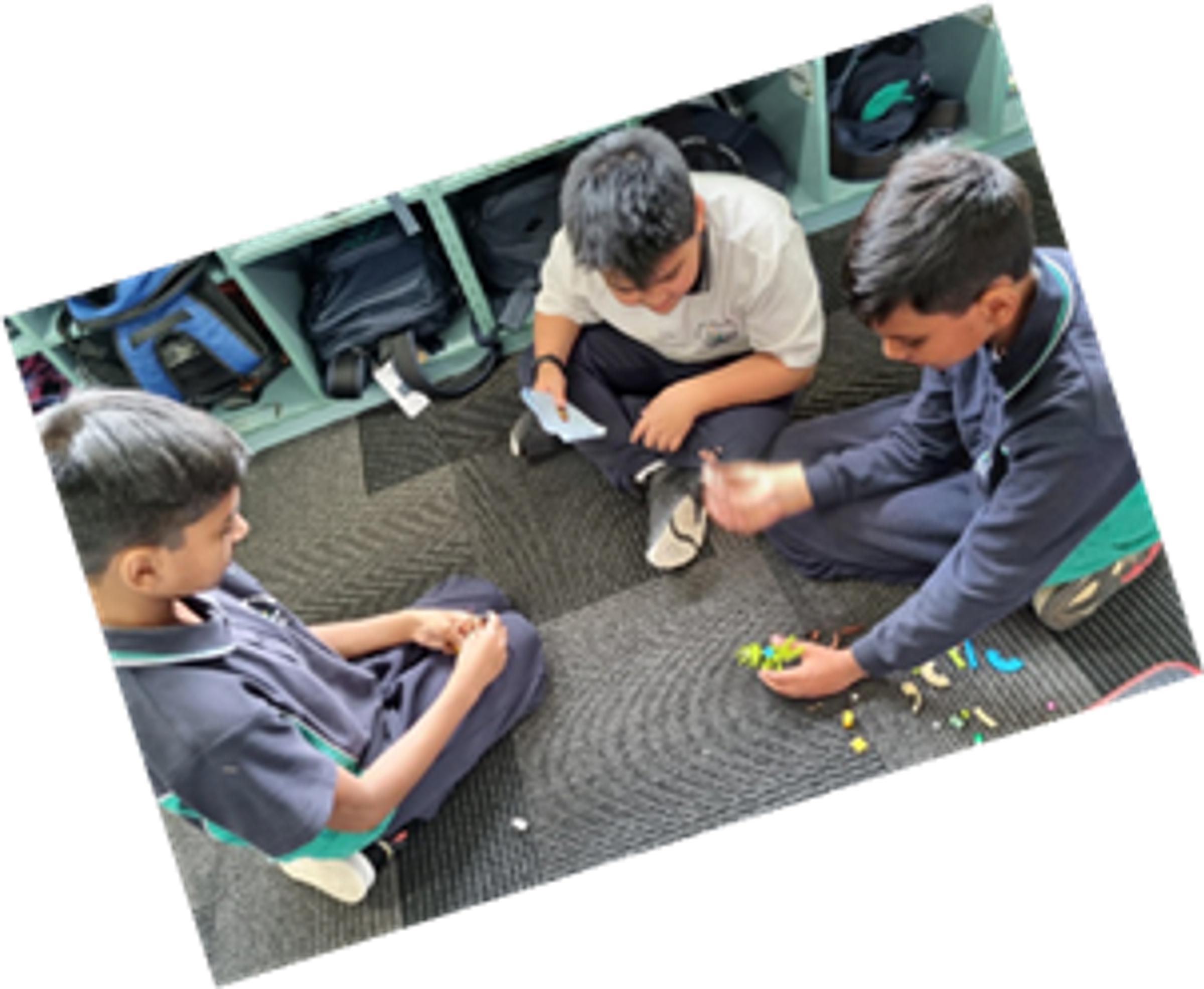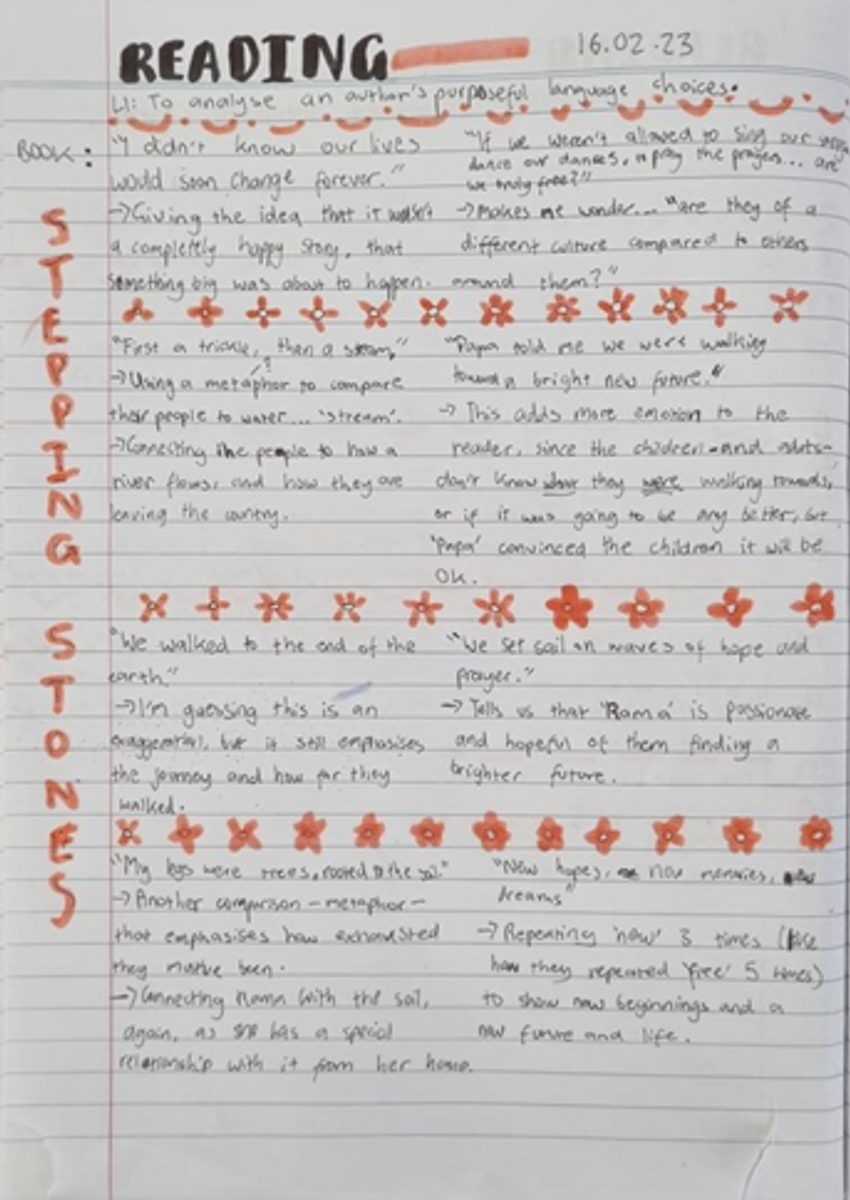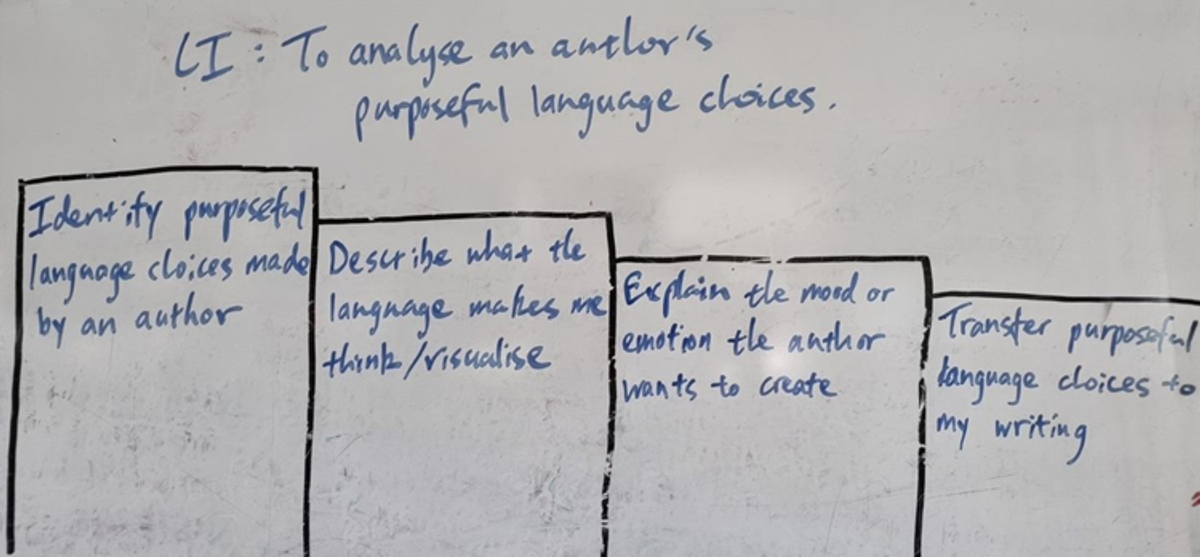English

During Term One, students will be exploring biographical texts, the ‘narrative’ or ‘story’ of an individual’s life, with a focus on the lives of influential people. They will begin by reading and analysing varied examples of biographies, which will in turn assist them to develop an understanding of how authors use a range of strategies, such as different language features, to engage the reader. It is through these strategies that students will immerse themselves in the experiences of these individuals and groups in society, develop their understanding of what led them to achieve success and influence positive change. Through these reading opportunities, we will aim to have students transfer these skills and strategies to their own writing. Their end goal will be to create their own biographies that explore the lives of people who have influenced positive change in the world.
Students will also have opportunities for independent reading and sustained writing; ensuring they can focus specifically on their personal CAFÉ (reading) and VOICES (writing) goals and apply learned strategies. Some of the concepts we will be unpacking to a deeper level with students will include:
- Using the four traits of effective paragraphs – a topic sentence, evidence to support the argument, explanation of the argument and a well-crafted transition to the next paragraph.
- Exploring and utilising different language features to paint a vivid picture of important experiences in their own lives and in the lives of influential people.
- Understanding the building blocks of ‘who, what, when and where’ within a timeline and digging deeper into ‘why’ and ‘how’ this significant development in society took place.
- Meaningful use of research sources, including the ability to synthesise and paraphrase reliable and relevant information.
In Spelling, students will deepen their understanding of our whole school approach to Spelling Inquiry. Through the Spelling Inquiry process they will investigate the vocabulary of other curriculum areas or words that have sparked their own personal wonderings. It is very much a process that is driven by student voice and curiosity. They explore a range of concepts related to words, including their definition, related spelling patterns, and their contextual usage in a sentence. Furthermore, etymology forms a significant aspect of the inquiry, where students unpack the ‘history’ of a word and how it has evolved through time.
Students analysing the language features within ‘Stepping Stones’ by Margriet Ruurs.
If you wish to support your child’s learning at home in the area of Literacy this term, you can:
- Encourage your child to read regularly and select books from a range of genres, so that they are exposed to a breadth of text types and authorial styles.
- Discuss interesting words your child notices when reading using questions such as, ‘What do you know about the word and its meaning?’ and ‘How could you use that word in speaking or writing?’
- Ask questions to strengthen your child’s understanding of their text. Prompting questions you can use during discussions with you child can include:
- What did you read?
- Why do you think that happened?
- How do you think that made the character feel?
- Why did the character do that?
- Why do you think the author wrote it that way?
- What do you think the author meant?



